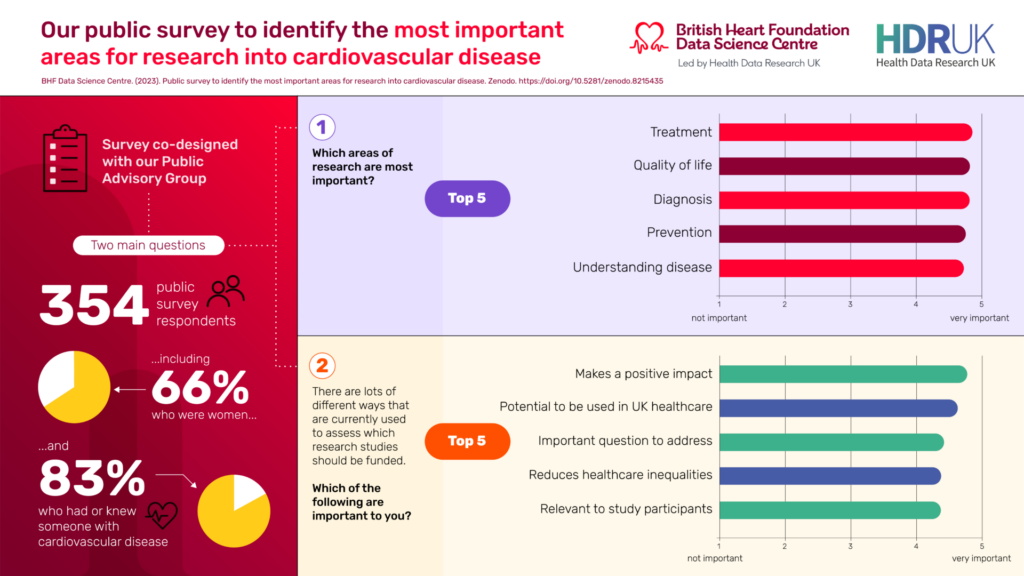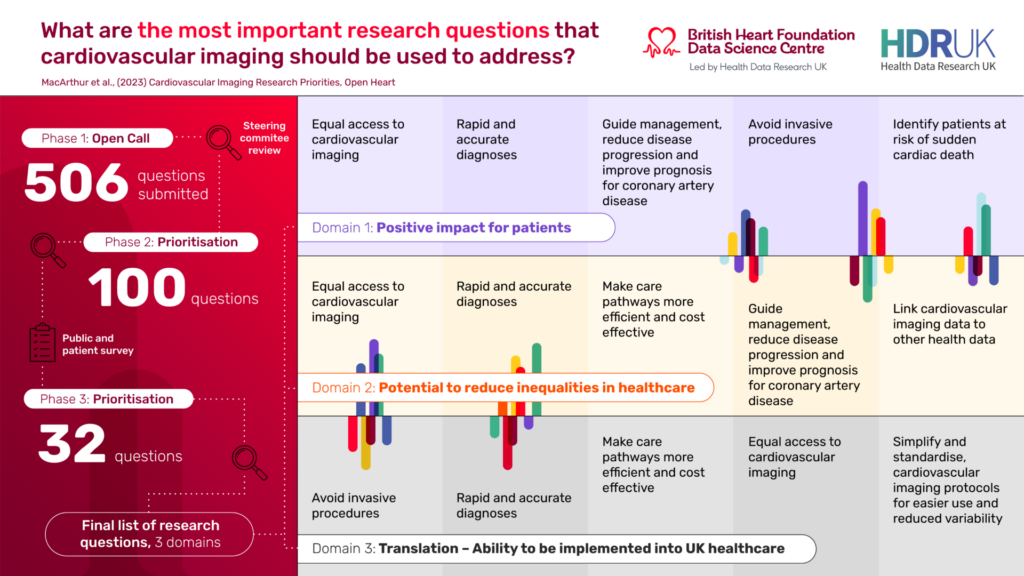Two major surveys of specialists and of patients and the public indicate what they feel should be the focus for research into heart health.
Research that focuses on impact for patients, quality of life, treatments, and findings that could be put into UK healthcare practice were some of the key areas that were highlighted.
Pinpointing priorities in this way could help researchers, funders and organisations plan future research.
“Almost all well-designed research projects into cardiovascular health can aid understanding of disease, but with finite resources, we must prioritise which are the most meaningful. ”
Professor Michelle Williams, Associate Director for Imaging and project co-lead, BHF Data Science Centre
Public and patient survey

More than 350 people took part in the first survey, which was aimed at non-specialists and was hosted online. The survey was co-designed by members of the BHF Data Science Centre’s public advisory group.
The public survey recorded 354 respondents, 83% of whom had or knew someone with cardiovascular disease and 66% of whom were women.
People were asked to rate areas of research for importance on a score of 1 to 5, with 5 indicating highest importance.
“Overall, the public survey shows that people recognise the value of research, rating many areas of research very highly on our scale.”
Dr Jackie MacArthur, Scientific Programme Manager and project co-lead, BHF Data Science Centre
Research questions that addressed quality of life, prevention and understanding disease, were some of the highest rated questions.
Funding considerations
The survey also asked which aspects of research patients and the public thought were important considerations when it came to funding. People thought that research that had a positive impact for patients and had the potential to be implemented into UK healthcare system were particularly important.
“It is vital that patients and the public are involved in research design from the outset. Embedding involvement into the earliest stages of research ensures that the research questions are relevant and have the potential to create meaningful impacts from a patient and public perspective.
Samaira Khan, Public and Patient Involvement and Engagement Manager, BHF Data Science Centre
Specialist survey

A second linked project zoned in on priorities for cardiovascular imaging research, which uses tools such as CT, MRI, echo and other types of scan or imaging test. These tools are increasingly used to help diagnose and guide treatment of cardiovascular disease.
This imaging survey was aimed at research and healthcare professionals and used established survey techniques to obtain a professional consensus view.
Professionals, such as doctors, data scientists and radiographers, took part in a three-stage exercise, which started with an open call for research questions with more than 500 potential research questions submitted.
Positive impact
The final step was a list of 32 research questions, which were all prioritised by three domains: potential for positive impact for patients, potential to reduce health inequalities, and potential for translation into UK healthcare.
Imaging research that addresses equality and improves diagnosis were very highly rated across all the three domains. Avoiding invasive procedures ranked top in the translation domain.
“Cardiovascular disease affects more than 7.6 million people in the UK and is the biggest cause of death across the world. The types of research we do over the next decades will be crucial to tackling these numbers and sparing families from being affected. We hope that these surveys will provide insights and help to guide future research.”
Professor Michelle Williams
Read more
The public survey: https://zenodo.org/record/8215435
The specialist survey: https://openheart.bmj.com/content/10/2/e002378


